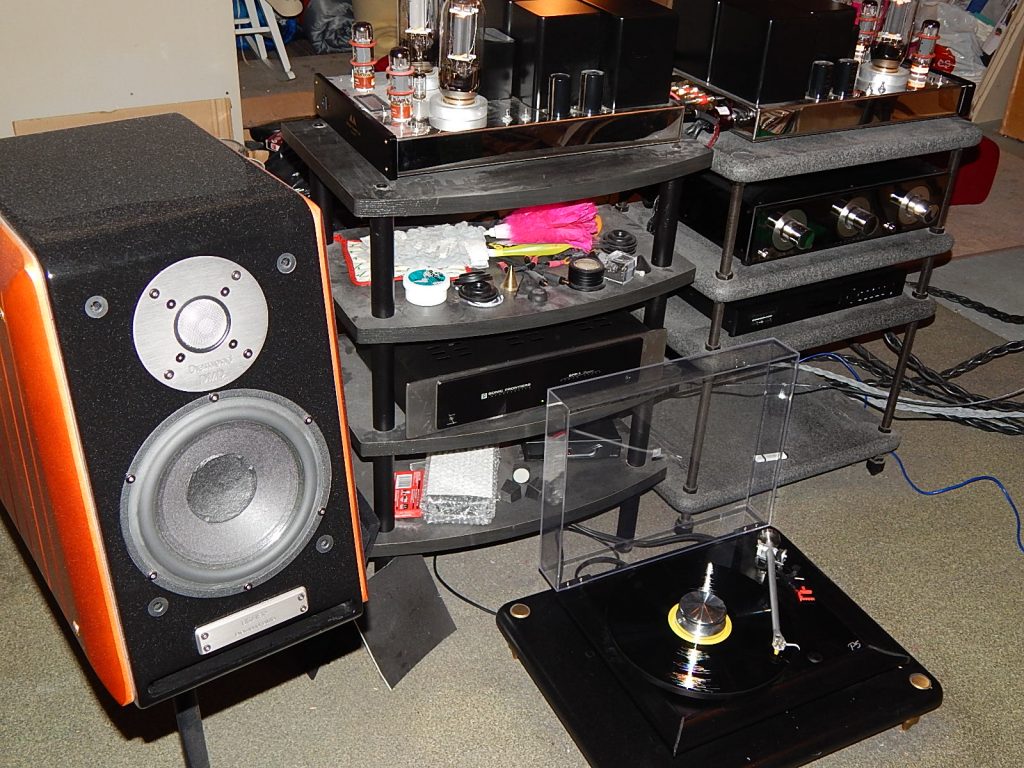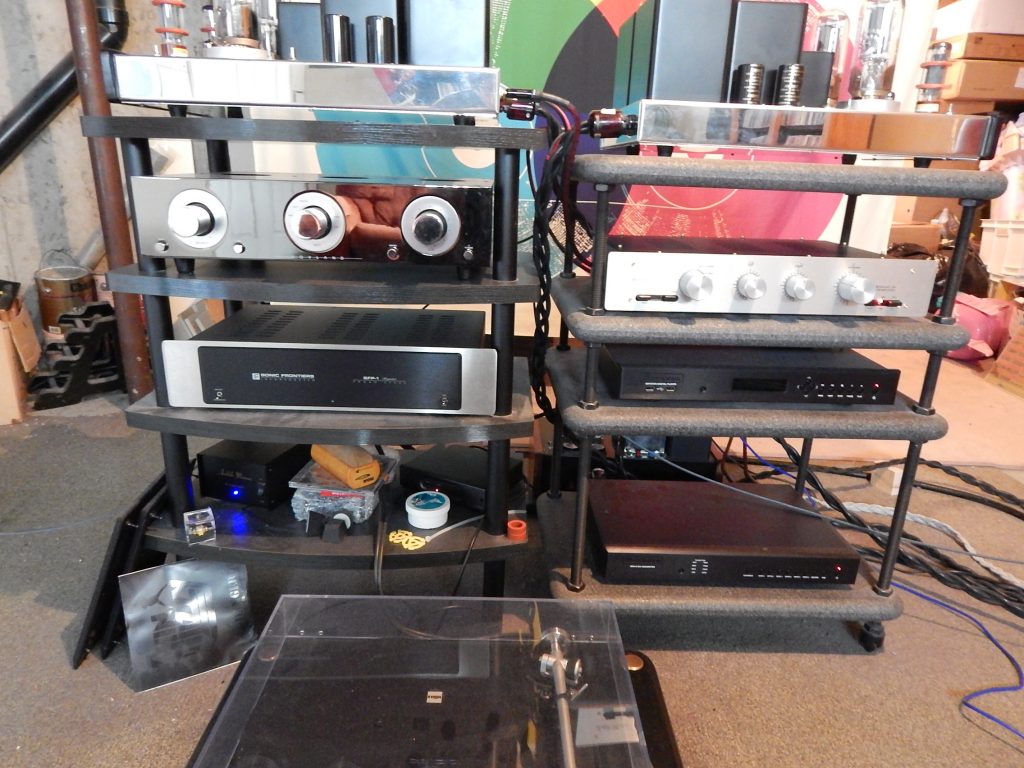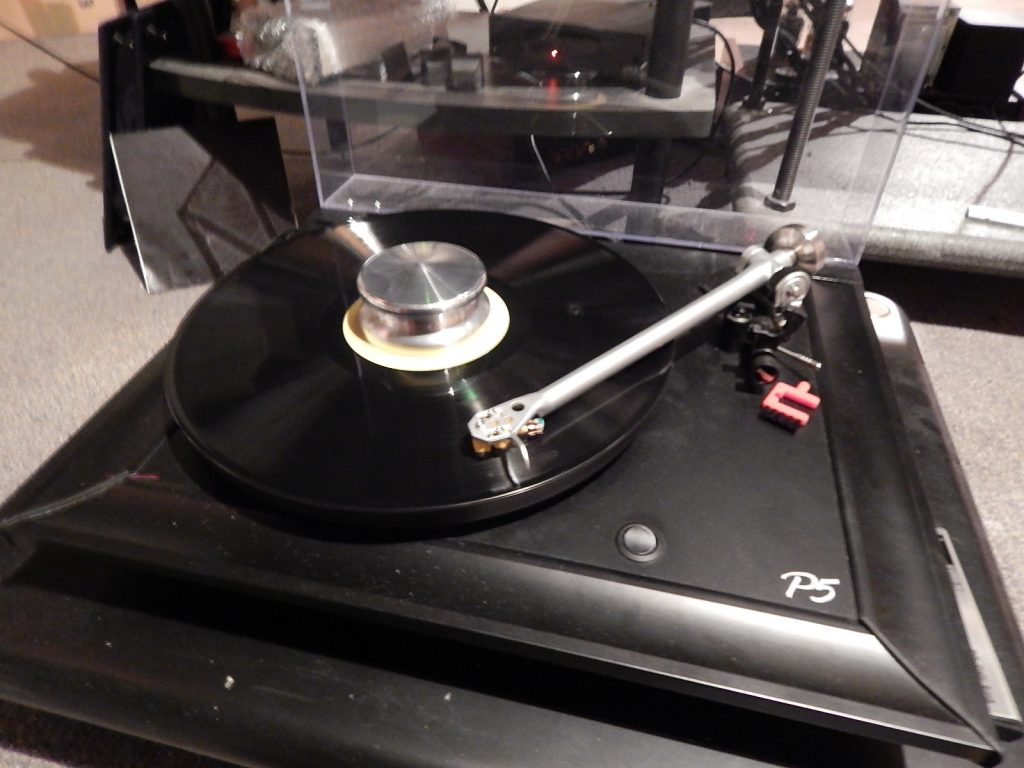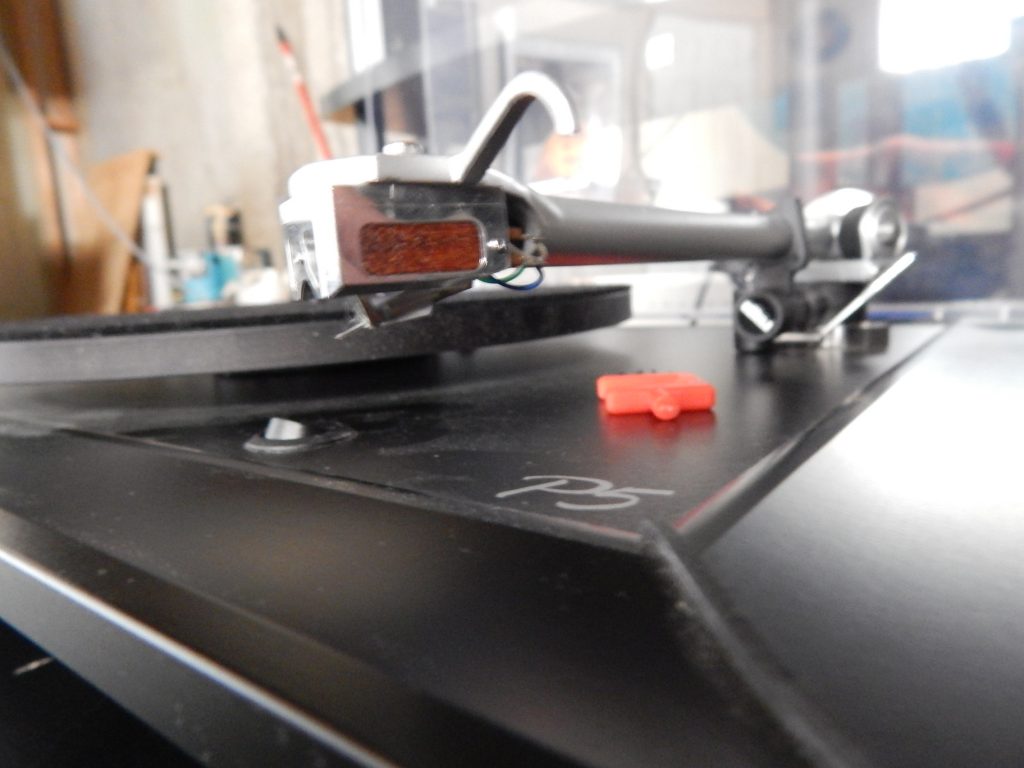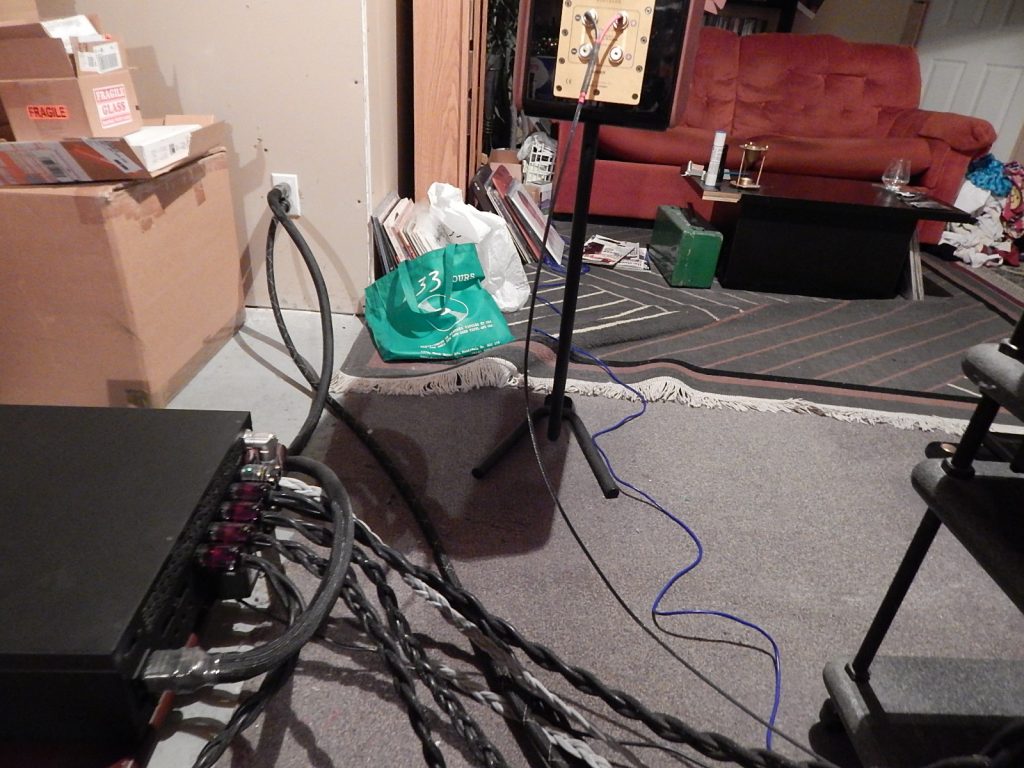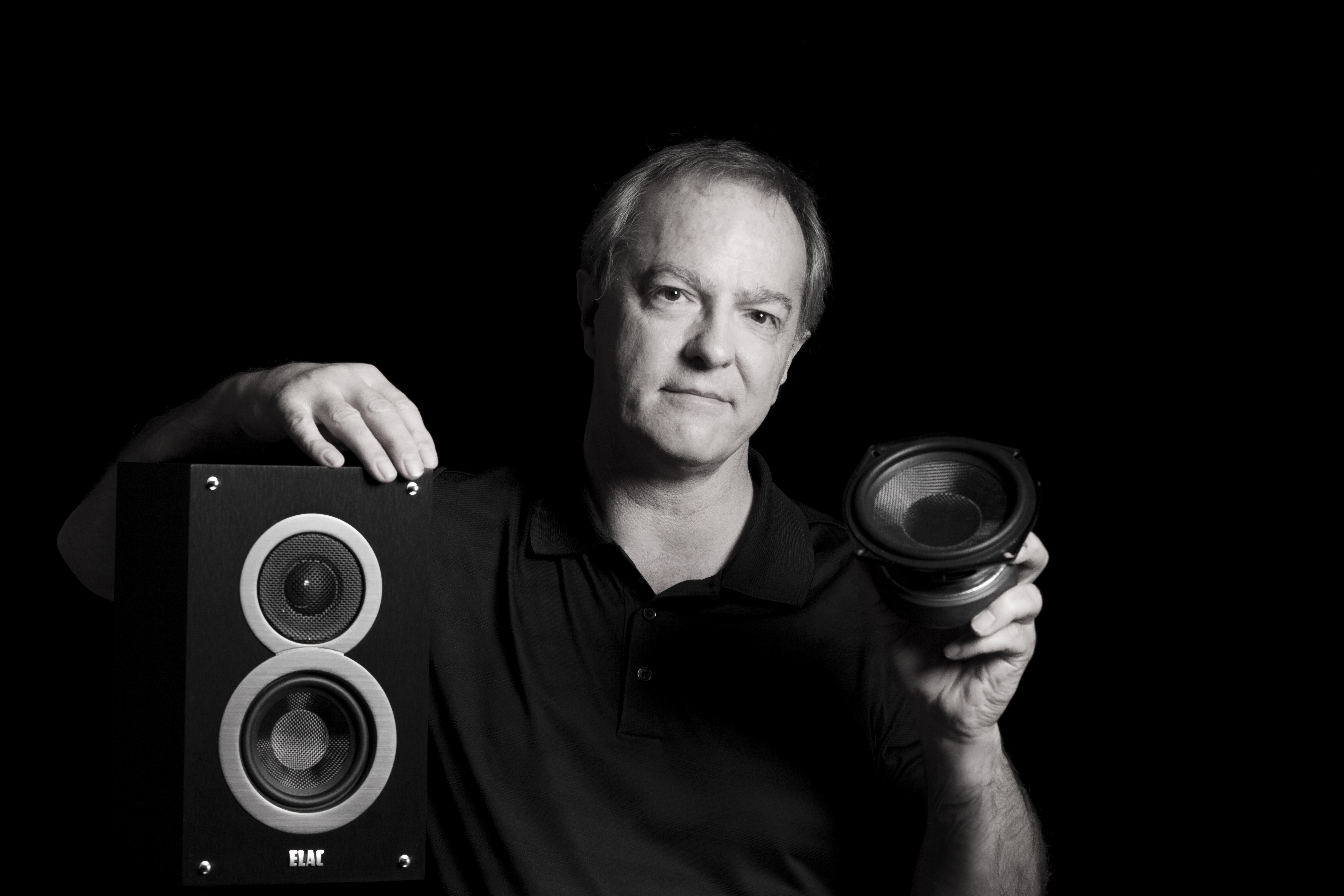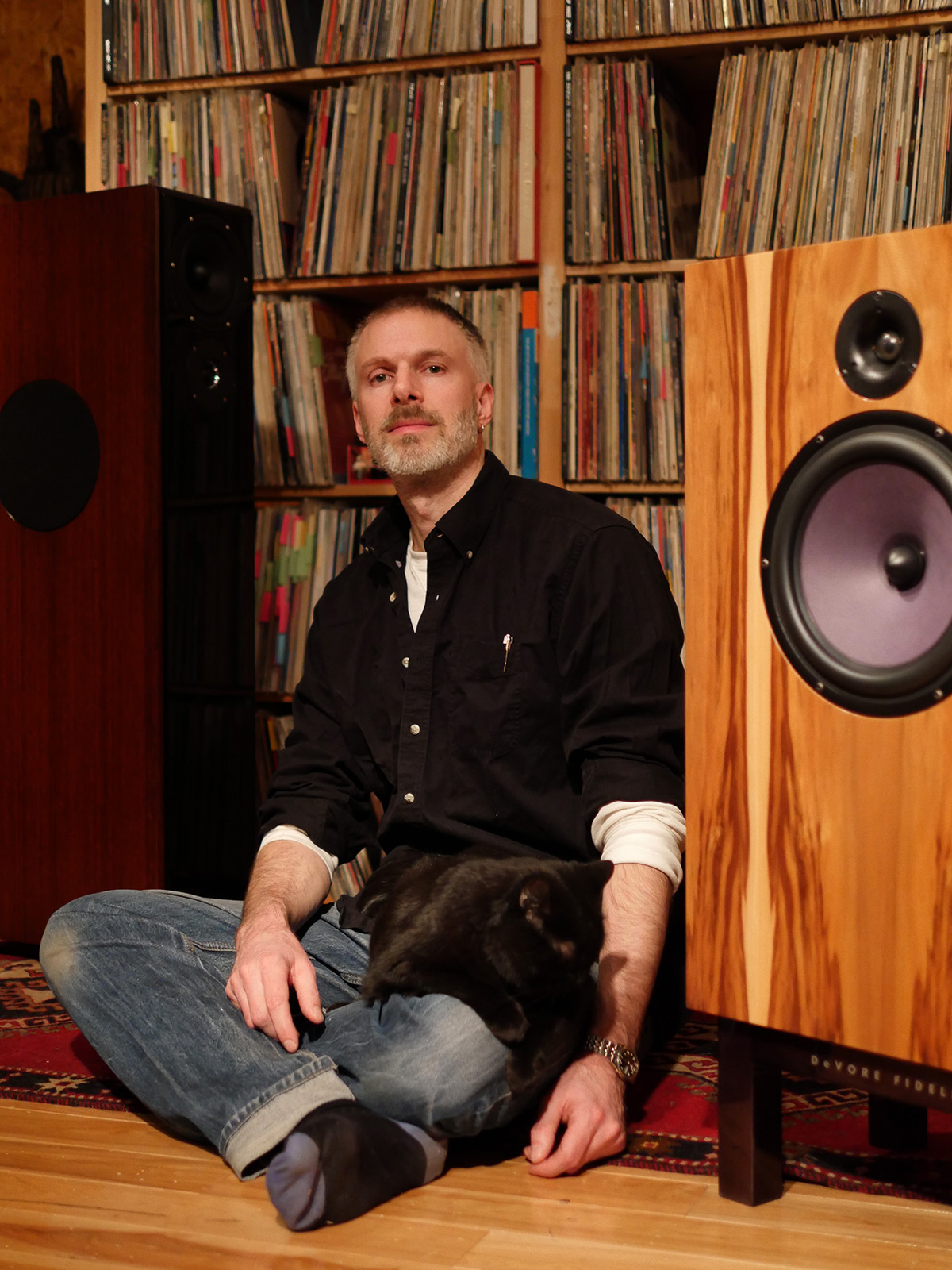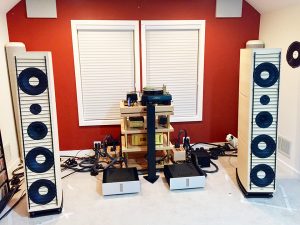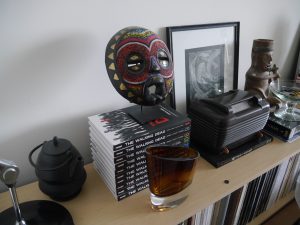Hitting the Ocean, or: "What Are You Babbling about Now?"
Those words contained about as much sympathy as you'd be likely to imagine they would. "What are you babbling about now?" That was my wife of 19 years, her face contorted in that 'you-know-I-don't-care' expression that drops like a curtain at the first sign of one of my audio monologues, this time as I began explaining the general concept of my hot tub epiphany. What she didn't know is I didn't care that she didn't care.
That's because I wasn't really explaining anything to her. It was me and the god of hypothesis I was appealing to. Still disoriented from my hot tub epiphany five minutes earlier, I was just using my wife as a babbling springboard to hear my ideas out loud.
Here, in a nutshell, is the first thing I bounced into the universe by way of my wife's jaded face: "When we listen to music, isn't our hearing just the beginning of a complicated process at the end of which it's the dual hosts of the human gestalt—emotion and intellect—that tell us how musically involved we are? I mean, we keep saying to trust our hearing, but shouldn't we also trust our heart and mind?"
She came to in a flutter of blinks and said: "You've been an audiophile for decades. You never said anything was missing before."
She had a point, but it was a salad crouton to my bulldozer. In my state of mind, and in my gut, I was birthing a game-changer.
"All I'm saying," I bounced back, "is if what we want most as audiophiles are emotional and intellectual connections with our music, why aren't we focusing more on the emotional and intellectual aspect of things?"
At this, my wife sprung one of her 'instant-surprise' facial expressions—a self-defense mechanism she's used on me countless times throughout our 19-year marriage. It's supposed to make me believe she just remembered something she has to go do, and is about to go do it, in the opposite direction of me. It hasn't worked in years and she knows it.
But it did, for a bewildering minute, bruise my self-confidence, because as much as my gut was telling me I was onto something, it was still too early in the game for me to know what that something was.
Then I reminded myself: when a recording we know to be musically engaging fails to be so through a certain audio setup, it's a-musicality isn't just heard; it's felt, scrutinized and questioned.
And when audio reviewers disclose that a given playback source succeeded in making their eyes well up, or raising the hairs on their necks, or opening their minds to new artistic meanings, what are they doing if not telling us in the most straightforward and unpretentious language that they achieved a heightened state of musical involvement, one whereby their hearing was used as a means to an end?
My confidence restored, I started wondering why, when such emotional and intellectual longings lie at the crux of our musical journey, we hear so little about it.
One seemingly obvious explanation is that the sub-level district that harbors our audiophile thoughts and feelings can seem akin to the deep, deep ocean: bottomless, dark , shifting, and difficult to stand on so that we're inclined to avoid the slippery sand for the solid ground of the tried-and-true. This isn't endemic to audio reviewing; count me among the 100% of audiophiles who would rather be listening to music than contemplating their relationship with it.
But would it not also be worth it to give that relationship a closer look, if, by doing so, there's opportunity to glean new perspectives or ways of doing things that could add insight, pleasure, and a renewable sense of discovery to what is, for many of us, a lifelong pursuit. To do this, though, we have to first denounce as hindering the opening of our minds the idea that we human beings are too different from one another to form any viable consensus as to what we each should be feeling, or thinking, while the music is playing.
The truth is that we are much more alike than we're different, even more so when it comes to how we feel or think during a shared experience we are equally passionate about.
Emotions and intellect are bonding and self-reflecting. When a reviewer writes about how a certain hi-fi's performance gave him goose bumps, I don't think to myself, "What a strange thing to say," I think, "Man, I know where he's coming from. I've felt that way, too." Emotions are personal to all of us, instinctively felt and understood. They sum up in one collectively distinct image the relevance of the 12 sound attributes that came before.
But, enough babbling. The question now is: after all this post-epiphany conjecturing, after my preliminary two-column setup to get to this point, where am I going with this?
Those were the last words I lobbed to my wife before she turned on the shower. What she replied through the rushing water was neither a direct answer to my question, nor very nice.
Still, this is what I came up with:
As it stands, subjective audio analysis has the "sound description" angle pretty much down pat. We can dissect the audioband in words that give substance to sound. That's good, because we need a dock to moor our boats to so they don't stray and get lost.
But I also believe there's something to be gained in exploring those undercurrents of feelings and thoughts that govern the backend of our listening experience. I'm not suggesting a new-age, hocus pocus, flighty style of doing things, just that we bring the backend of our listening experience closer to the forefront, so we can dance with it.
We'll need outside help, of course. But that's fine; I see plenty of buoys bobbing on the water that could offer us light and guidance along the way, such as: audio engineers and designers, reviewers, musicians, university professors, software developers, scientists, composers, conductors, psychologists, family members (but probably not my wife), and on and on.
I hope you decide to join me; I could use the company. But not just your company; if, in the course of our travels, you get smacked in the cerebrum with an idea, suggestion or even an epiphany you think could serve the interests of our cause, feel free to send me an intelligible, non-technical email about it via the Positive-Feedback contact page. These voyages in audio subjectivism are for all of us living on the fringes.
Just make sure, though, that if we're to meet again, your boat is unhitched before we leave dock.




